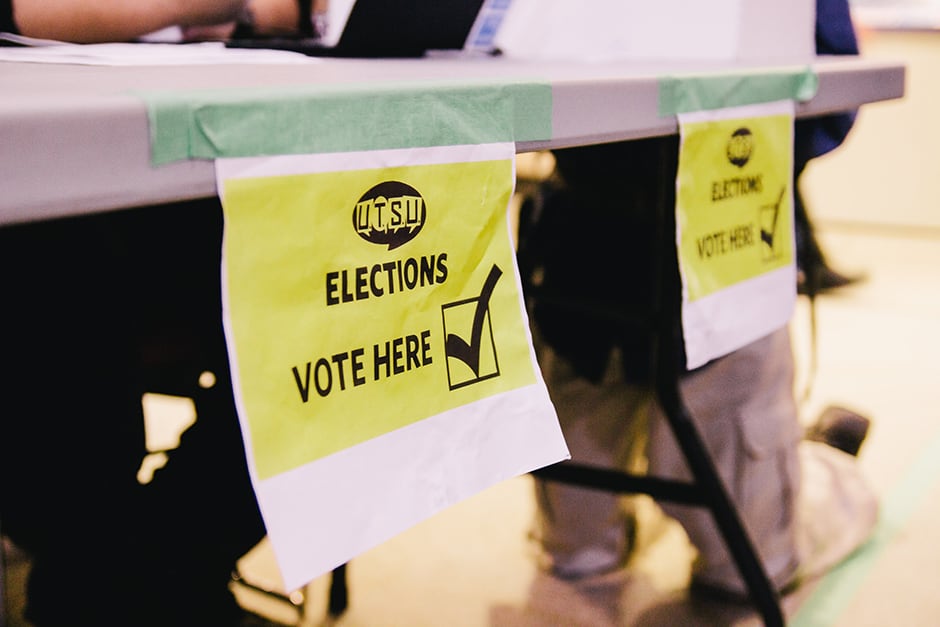During the University of Toronto Students’ Union (UTSU) spring elections, 308 students from various professional faculties at U of T did not receive ballots for their UTSU faculty board of directors representative, an error that prompted SimplyVoting to email the students requesting re-votes.
The error affected: three votes in the Faculty of Medicine, 13 votes in the Faculty of Kinesiology and Physical Education, seven votes in the Faculty of Nursing, 38 votes in the Faculty of Architecture, and 247 votes in the Faculty of Engineering.
“Our CRO [chief returning officer] discovered that the way that the system was set up did not fit the way that some of the data was formatted in the university’s list,” said Vere Marie Khan, UTSU vice president university affairs and Ben Coleman, UTSU president, in a joint statement to The Varsity. Both Khan and Coleman sit on the Elections & Referenda Committee (ERC), which is in charge of appeals, hiring the CRO, and setting elections policies.
“There are two columns for ‘segments’ which tell us which ballots to give a voter,” Khan and Coleman explained. “Sometimes the University formats students in professional faculties with the information repeated in both columns, and sometimes it doesn’t. This had the result that some students in some professional faculties did not receive ballots for the director for their faculty. This also meant that the error did not come up in routine testing before the system went live, as the problem is only experienced by a limited number of students.”
According to Khan and Coleman, the CRO immediately informed the ERC members of the situtation and contacted SimplyVoting to ensure that it was fixed. The CRO also recorded information that would be needed to investigate the problem later.
“This all happened on the first day of voting,” said Khan and Coleman. “Since SimplyVoting does not have the ability to change a vote after it has been cast, the system was corrected and any student who may have been affected was sent an email using their official UofT account to inform them that they had to vote again and to explain why the problem had occurred.”
“The CRO made every available effort to ensure that students’ right to vote for all of the positions they are entitled to was upheld,” Khan and Coleman continued.
With the help of information gathered from the CRO and SimplyVoting, Khan and Coleman were able to ascertain that “60% of the students who had their ballot corrected were able to successfully vote with the full ballots.”
When asked about any potential investigation into the reasons behind the issue, Khan and Coleman stated, “Any information about the correction of these ballots was shared with the ERC as soon as possible, and “the situation was also explained to the Board on March 31st when the election results were presented.” After clarifying that the CRO and SimplyVoting had already answered all of the ERC’s questions regarding the situation, Khan and Coleman explained, “there is no further action warranted, as the CRO has already communicated to the University and Simply Voting, explaining how to avoid the problem in the future. Additionally, there is no eligible position for which the problem would have cast the results into question.”
Correction (April 5, 2016, 5:53 pm): an earlier version of this article named the Elections & Referenda Committee as an appellate body when it is in fact responsible for other election-related matters as well; insinuated that the CRO destroyed evidence of the problem; and suggested that the data was irretrievably lost. The article has been updated to reflect these changes. The Varsity regrets the errors.


